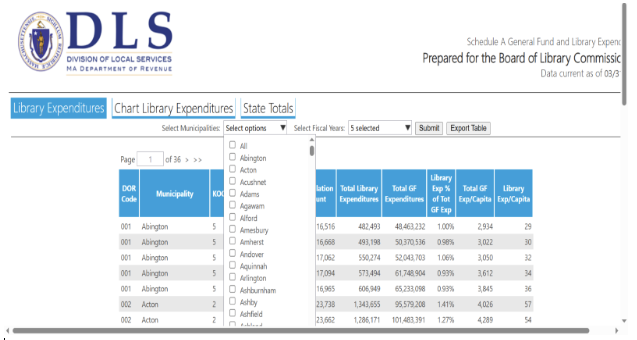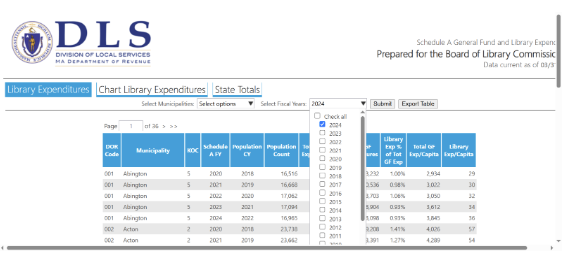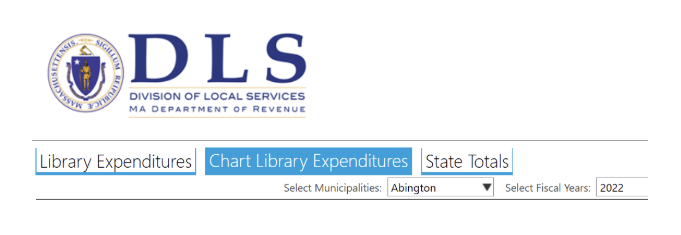Dear Colleagues,
I’m glad to be able to start this update with some good news. Last night, the U.S. District Court for the District of Columbia granted a temporary restraining order to block the dismantling of the Institute of Museum and Library Services (IMLS) that resulted from President Trump’s Executive Order 14238. We’re working to determine how this will impact our ability to access IMLS funds.
In the meantime, with FY2026 rapidly approaching, the MBLC continues to navigate and plan for staff and services in a rapidly changing environment. Some states have received IMLS reimbursements (including us—more information below) and there are reports that funds for FY2026 are coming. On the surface these sound like positive developments. However, with little to no staff at IMLS (the majority of IMLS employees were placed on a 90 day leave at the end of March) and what appear to be new requirements to receive funding, questions remain about IMLS as a reliable source of funding.
Some quick background: Prior to President Trump’s Executive Order, IMLS required the MBLC to submit a five-year plan that sets broad strategic direction for the use of federal funds, and after five years there is an evaluation. Plans and evaluations are on the MBLC website.
Now, compliance with other executive orders filed by President Trump may be part of the process to receive IMLS funding. In late April, the MBLC received the email below from IMLS Acting Director Keith Sonderling asking the MBLC for the following information:
From the Sonderling email:
Pursuant to 20 USC § 9134 and your obligations under the Grant Award Guidance and Statement of Assurances and Certifications, please provide IMLS with the following information:
- Whether and how federal taxpayer dollars provided to you under the Grants to States program have been used, or are still being used, to subsidize programs that conflict with government policy as found below:
Executive Order 14151, Ending Radical and Wasteful Government DEI Programs and Preferencing, and
Executive Order 14253, Restoring Truth and Sanity to American History, and
Executive Orders 13899 and 14188, Combating Anti-Semitism and Additional Measures To Combat Anti-Semitism, and
Executive Order 14168, Defending Women From Gender Ideology Extremism and Restoring Biological Truth to the Federal Government, and
Executive Order 14202, Eradicating Anti-Christian Bias, and
Executive Order 14190, Ending Radical Indoctrination in K-12 Schooling, and
- How federal taxpayer dollars provided to you under the Grants to States program are being used to facilitate access to resources that cultivate an educated and informed American citizenry, and
- How you plan to involve your agencies in the upcoming celebration of the 250th anniversary of the United States of America?
The MBLC is responding with the requested information. That said, the MBLC remains committed to serving everyone—it’s what we have done since 1890 and it’s what we will continue to do.
In terms of reimbursements, as a sort of trial run, the MBLC submitted a small reimbursement to IMLS on April 6. Nearly a month later, we received notice that reimbursement is being processed. Before President Trump’s Executive Order, turnaround time for reimbursements was a few days. This lag time may be indicative of the ongoing challenges of trying to run IMLS with little to no staff.
Both the instability at IMLS and the Sonderling email serve as indicators that at this point, federal funding remains uncertain. This places the MBLC in the position of planning for FY2026 without federal funding. The broad effect of President Trump’s Executive Orders, impacting more than libraries, and creating funding challenges across the state, means that the state budget cannot make up the total loss of the $3.6 million in IMLS funds the MBLC receives.
At yesterday’s MBLC board meeting, I called the situation dire. For example, the state House Ways and Means budget, which level funded all MBLC budget lines, leaves us short in our agency line, 7000-9101. Without the increase of $415,000 to this line as requested in the FY2026 Legislative Agenda, and in spite of cutting absolutely everything possible from that line, the MBLC cannot cover the basic costs for the agency – salaries and the lease on our office space. There isn’t any place else within our budget lines that funding for agency operations can come from.
In terms of MBLC staff, we’re already lean—having gone from a staffing high of 38 in previous years to 23 current staff members. To provide the services required in Massachusetts General Law Chapter 78, we need every single person we currently have on staff. If we cut staff, we will have to cut services, and that would put us out of compliance with state law.
For FY2026, we continue to work on plans and are in constant communication with the Massachusetts Library System (MLS) and vendors as we figure out funding levels that would allow us to continue as many services as possible with the funds we have left.
Our efforts now turn to the Senate which will release its budget proposal this month. It is crucial that progress is made towards the funding requested in the FY2026 Legislative Agenda, especially budget line 7000-9101, Board of Library Commissioners.
Sincerely,
Maureen Amyot
Director, Massachusetts Board of Library Commissioners




